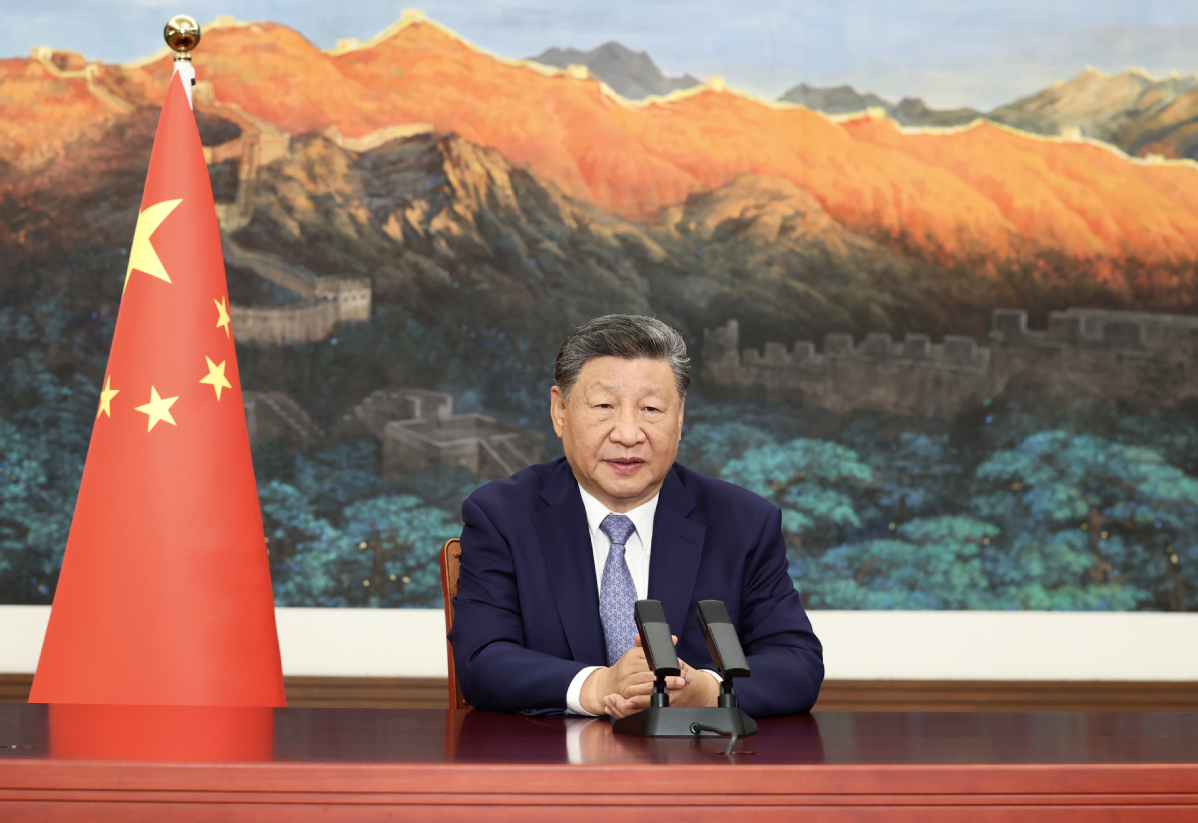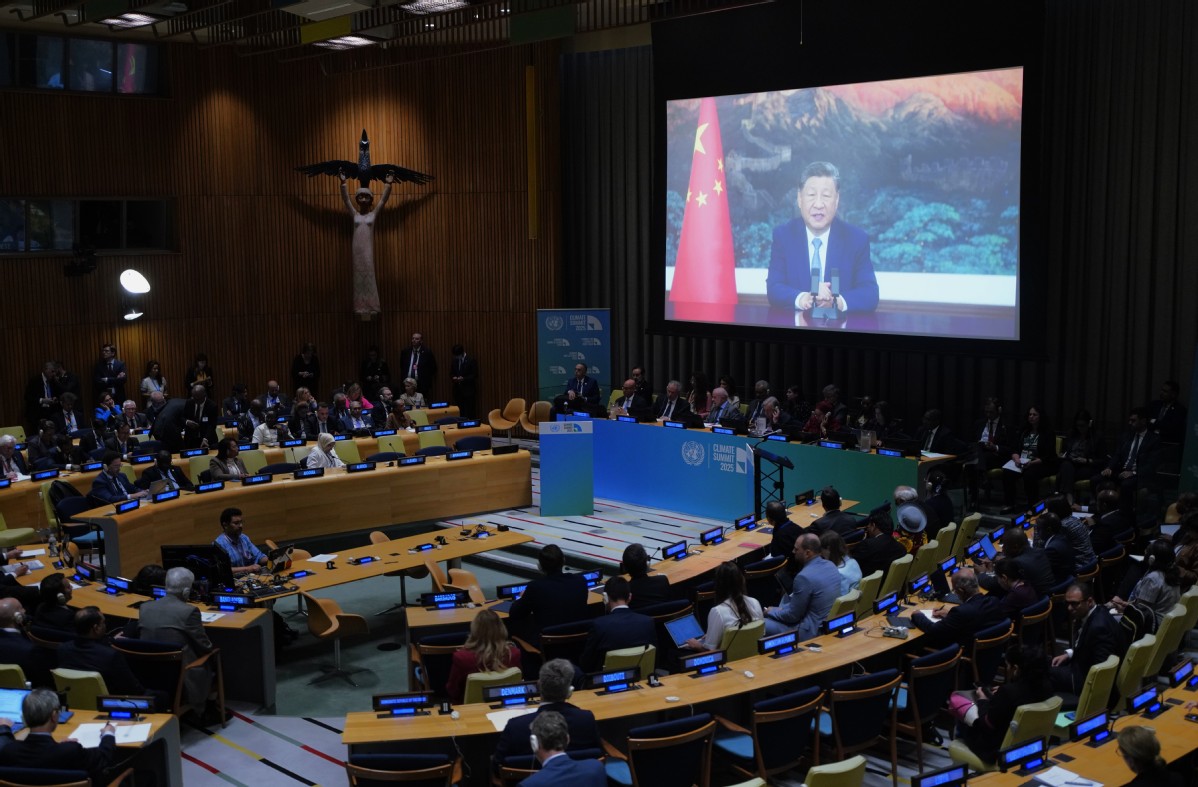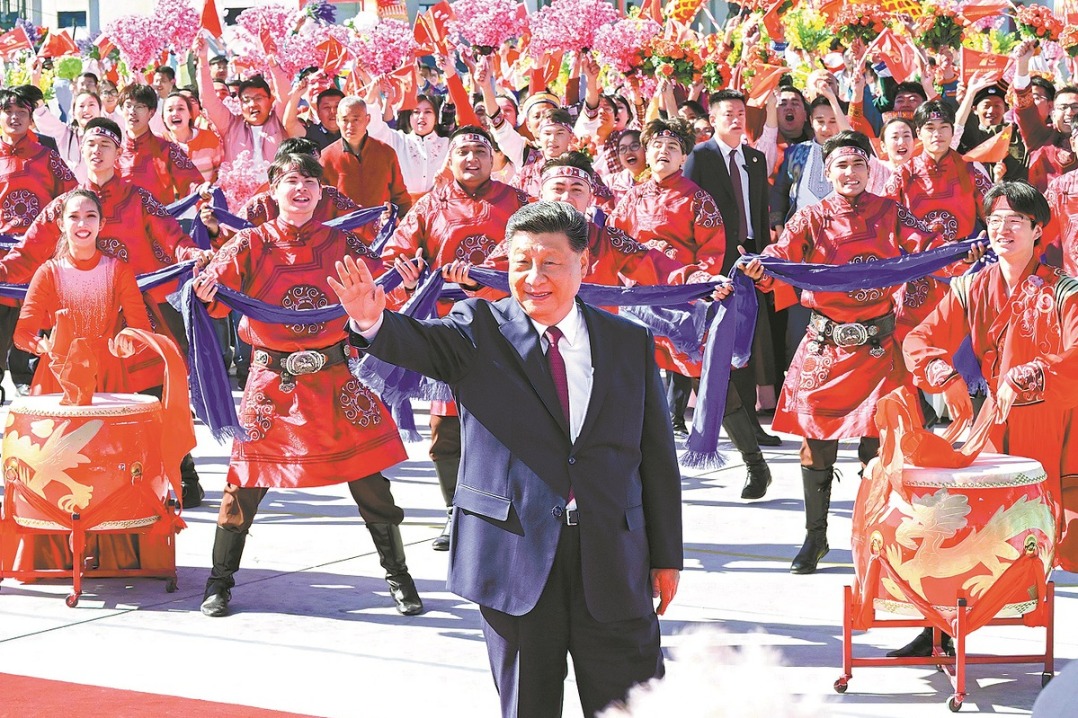China beefs up climate response with new 2035 targets


President Xi Jinping announced China's new climate pledges to the world on Wednesday, underscoring the country's consistent commitment to global climate governance.
In a video address to the United Nations Climate Summit, Xi said that by 2035, China will reduce economy-wide net greenhouse gas emissions by 7 percent to 10 percent from peak levels, while striving to do even better.
He noted that the year 2025 marks the 10th anniversary of the Paris Agreement on climate change, calling it a pivotal year for countries to submit their new Nationally Determined Contributions, or NDCs.
NDCs, which are at the heart of the Paris Agreement and the achievement of its long-term goals, embody efforts by each country to reduce national emissions and adapt to the impacts of climate change.
China submitted its initial set of NDCs under the Paris Agreement in 2015, and updated the targets in 2020, vowing to peak its carbon emissions before 2030 and achieve carbon neutrality before 2060.
Outlining China's latest NDCs targeting 2035, Xi also highlighted goals to increase the share of nonfossil fuels in total energy consumption to over 30 percent, and to expand the installed capacity of wind and solar power to more than six times the 2020 levels, striving to bring the total to 3,600 gigawatts.
China's new NDC targets also include scaling up the total forest stock volume to over 24 billion cubic meters, making new energy vehicles the mainstream in sales of new vehicles, expanding the National Carbon Emissions Trading Market to cover major high-emission sectors, and basically establishing a climate-adaptive society.

The latest updates mark the first time that China has committed to absolute emissions reduction targets covering all economic sectors and all greenhouse gases.
In recent years, China has made tremendous efforts to deliver on its commitments to emissions reduction. The nation's investment in clean energy reached over $625 billion in 2024, accounting for one-third of the global total and nearly doubling its 2015 investment, according to a report released at an energy industry forum in June.
Dimitri de Boer, director for China at environmental organization ClientEarth, said: "China has committed to continuing its rapid deployment of renewable energy and reducing emissions from the peak. If recent trends continue, the NDC targets will be met and exceeded."
He added that China's "low-cost, high-quality green technologies are the greatest breakthrough in the global fight against climate change. By accelerating innovation in renewable energy, electric vehicles and clean tech, China is proving that sustainable growth and climate action can go hand in hand".
In his speech on Wednesday, Xi pointed out that "green and low-carbon transition is the trend of our time" and urged the international community to push for the formulation and delivery of NDCs.
Citing the principle of common but differentiated responsibilities, he called on developed nations to take the lead in emission reduction and provide more financial and technological support to developing countries.
It is important that countries strengthen international coordination in green technologies and industries to address the shortfall in green production capacity and ensure the free flow of quality green products globally, so that the benefits of green development can reach all corners of the world, he said.





































